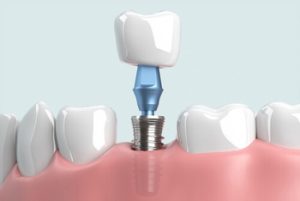In this article, we’ll delve into this question, explore the factors affecting the overall cost of dental implants, discuss the benefits of dental implants, examine alternative ways to afford dental implant treatments, and provide an overview of what to expect when getting dental implants in Australia.
Is There Dental Insurance That Covers Implants?

Understanding Major Dental Coverage
In Australia, some private health insurance plans offer major dental extras covers, which may include coverage for dental implants. Major dental cover plans typically benefit major dental procedures, including crowns, bridges, and implants. However, coverage levels and limits can vary significantly between insurance providers and policies.
Cost Of Dental Implants And Insurance Cover Options
The cost of dental implants can vary depending on various factors. While dental insurance may cover some of the cost, individuals may still be responsible for out-of-pocket expenses, such as costs exceeding the annual benefit limit.
Factors Affecting The Cost Of Dental Implants
The cost of dental implants can vary significantly, depending on several factors. Understanding these factors can help individuals better estimate the overall cost of treatment and make informed decisions about their dental care. Here are some key factors that can influence the cost of these dental treatments:
- Number Of Implants Needed: The total cost of treatment depends largely on the number of implants needed. Individuals who require more than one implant to replace many missing teeth will pay more than those who need one.
- Complexity Of The Procedure: The cost of a dental implant treatment may vary depending on its intricacy. For instance, because of the greater complexity and duration of surgery, patients who need additional treatments like bone grafting or sinus lifts to enhance the jawbone may have to pay more for their care.
- Materials Used: The materials used in dental implant operations may also impact the final cost. High-quality materials, such as porcelain crowns and titanium implants, provide superior durability and aesthetics, even if they may be more expensive than less expensive options.
- Expertise Of The Dental Implant Dentist: The cost of treatment may vary depending on the experience and skill of the dental implant dentist performing the work. Implant dentists with extensive training and experience may charge more for their services.
- Preparatory Procedures: Patients may occasionally need certain procedures completed before dental implants. These treatments, which include bone grafts and tooth extractions, could increase the overall cost of care and should be included in the treatment plan.
- Geographic Location: The dentist’s office’s location may also impact dental implants’ price. When comparing treatment costs between rural or less populated places and metropolitan areas, locations with a higher cost of living may have higher treatment costs.
- Clinic Facilities And Technology: The cost of dental implant surgery may vary depending on the clinic’s amenities and technological capabilities. Modern facilities and state-of-the-art technology may require practices to demand greater fees to pay overhead and uphold high service standards.
- Additional Services And Aftercare: Patients should also consider aftercare and other services when planning their dental implant treatment budget. These might include maintenance visits, follow-up sessions, and any alterations or repairs that the implant restoration may require.
Benefits Of Dental Implants
Dental implants offer numerous advantages compared to traditional tooth replacement options such as dentures or bridges. Understanding these benefits can help individuals make informed decisions about their dental treatment.
Here are some of the key benefits of dental implants:
Improved Oral Function
Effective restoration of oral function is one of the main advantages of dental implants. Dental implants offer stability and support for biting and chewing, unlike removable dentures that may slide or move when eating or speaking. Instead, dental implants are firmly fixed in the jawbone. This eliminates discomfort and bother and enables people to keep a more diverse diet and enjoy a greater variety of foods.
Enhanced Aesthetics
Dental implants are an aesthetically pleasing alternative for tooth replacement since they feel and look similar to natural teeth. A seamless and harmonious smile is achieved when implant crowns are custom-designed to complement the surrounding natural teeth in size, shape, and colour. Furthermore, implants avoid the sunken look sometimes linked to missing teeth and help maintain facial features.
Long-Term Durability
When properly cared for, dental implants offer remarkable endurance and lifespan, making them a permanent remedy for missing teeth. Implants do not require the numerous replacements or modifications that come with other tooth replacement alternatives. Instead, they can last a lifetime with proper oral care and routine dental check-ups.
Preservation Of Jawbone Health
Because dental roots do not stimulate the jawbone beneath the missing tooth, it may eventually degenerate. Dental implants stimulate the surrounding bone tissue like natural tooth roots, maintaining the strength and density of the mandible. Preventing bone loss achieves long-term preservation of face integrity and structure.
Improved Speech
Missing teeth can impact speech clarity and pronunciation, which can cause articulation and communication issues. People who get dental implants can talk more confidently and clearly without the slurred speech or lisping sometimes associated with tooth loss. Dental implants restore normal tooth alignment and occlusion.
Enhanced Comfort And Confidence
Dental implants offer unmatched comfort and stability, unlike removable dentures, which can irritate the gums and produce painful spots after prolonged usage. With implants, people can feel more secure and confident in everyday interactions since they don’t have to worry about denture adhesives or slippage during social events or chats.
Convenience And Maintenance
Dental implants can be maintained with routine brushing, flossing, and dental check-ups, much like natural teeth. On the other hand, dentures must be removed every night for cleaning and soaking. As the burden of maintaining dentures is eliminated, people may now experience a more easy and stress-free dental care regimen.
Improved Overall Quality Of Life
Dental implants’ greatest advantage is the improvement in general quality of life they may provide. They release people from the restrictions and suffering frequently connected with missing teeth, allowing them to lead a more meaningful and active lifestyle by restoring oral function, aesthetics, and confidence.
Other Ways To Get Your Dental Implants Covered
While dental implants offer numerous benefits, the cost of treatment can be a significant concern for many individuals. Fortunately, several alternative ways exist to afford dental implant treatments beyond relying solely on dental insurance. Here are some options to consider:
Payment Plans Offered By Dental Practices
Many dental practices offer flexible payment plans to help patients spread the cost of dental implant treatment over time. These plans typically divide the total treatment cost into manageable monthly instalments, making it easier for individuals to budget for their dental care without experiencing financial strain.
Personal Loans
Another option for financing dental implant treatments is to apply for a personal loan through a bank, credit union, or online lender. Personal loans provide a lump sum of money to cover the cost of dental implants, which can then be repaid over time with interest. It’s essential to compare loan terms and interest rates to find the most competitive option that fits within your budget.
Dental Savings Plans
Dental savings or dental discount plans offer an alternative way to save money on dental care, including dental implant treatments. These plans typically involve paying an annual membership fee in exchange for discounted rates on dental services provided by participating dentists. While dental savings plans do not cover the entire cost of treatment, they can help reduce out-of-pocket expenses for individuals without insurance coverage.
Health Savings Accounts (HSAs) Or Flexible Spending Accounts (FSAs)
Health savings accounts (HSAs) and flexible spending accounts (FSAs) are tax-advantaged savings vehicles that can be used to pay for qualified medical expenses, including dental implant treatments. Contributions to HSAs and FSAs are made pre-tax, reducing taxable income and providing potential savings on dental care costs. Individuals with access to these accounts through their employer-sponsored health plans can use them to cover out-of-pocket expenses for dental implants.
Negotiating Treatment Costs
In some cases, dental practices may be willing to negotiate treatment costs or offer discounts for paying upfront or in cash. It’s worth discussing payment options with your dentist and exploring whether there is room for flexibility in pricing to make dental implant treatment more affordable.
What To Expect When Getting Dental Implants In Australia
Embarking on the journey to dental implants is transformative, but understanding the process can alleviate uncertainties and ensure a smoother experience. Here’s what individuals can expect when undergoing dental implant treatment in Australia:
- Initial Consultation And Treatment Planning: An initial consultation with a certified implant dentist is the first stage in the dental implant process. At this session, the dentist will perform a thorough oral examination with digital scans and X-rays to evaluate the condition of the surrounding teeth, jawbone, and gums. Based on the results, the dentist will create a personalised treatment plan suited to the patient’s needs and objectives.

- Preparatory Procedures (If Needed): Depending on the patient’s dental health and the state of the jawbone, some treatments, including bone grafting, sinus lifts, or tooth extractions, may be required before implant implantation. These processes provide the best possible course of treatment and aid in laying a solid foundation for the implants.
- Implant Placement Surgery: The dental implants are surgically placed after the treatment plan has been decided upon. Local anaesthesia is usually used during this surgery to improve patient comfort. The dentist carefully places the implants in the jawbone to achieve optimal placement and stability using precise surgical methods.
- Osseointegration Period: Osteointegration, the healing phase that follows implant implantation, starts. During this period, a process known as osseointegration allows the implants to join with the surrounding bone tissue, creating a solid and long-lasting link. Temporary restorations may be inserted throughout this healing phase, which usually lasts several months, to preserve appearance and functionality.
- Placement Of Permanent Restorations: Once osseointegration is finished, the installation of permanent implant restorations is the last stage of treatment. These might include single crowns, bridges supported by implants, or dentures supported by implants, depending on the number of lost teeth and the course of therapy. The restorations match the natural teeth for the best possible function and lifelike look.
- Follow-Up Care And Maintenance: Patients must schedule routine follow-up visits with their dentist to ensure the durability and long-term success of the permanent restorations. Regular cleanings, maintenance appointments, and dental examinations are crucial for monitoring oral health and identifying problems early.
- Long-Term Oral Care: Maintaining the health and durability of dental implants depends on good oral hygiene habits. To stop plaque accumulation and gum disease, this entails brushing twice a day, flossing often, and using antimicrobial mouthwash. People should also abstain from bad habits like smoking, which can hinder implant recovery and raise the possibility of implant failure.
Frequently Asked Questions
Does dental insurance typically cover the full cost of dental implants?
Dental insurance coverage for implants varies between policies and providers. While some plans may cover a portion of the cost, it’s rare for insurance to cover the entire expense of dental implants.
How can I find out if my dental insurance covers implants?
Review your insurance policy or contact your insurance provider directly to enquire about coverage for dental implants. Be sure to ask about any limitations, waiting periods, or exclusions that may apply.
Are there alternative ways to afford dental implant treatments without insurance?
Yes, alternative payment options include payment plans offered by dental practices, personal loans, and dental savings plans. Discuss your options with your dentist to find a solution that works for you.
What are the benefits of choosing dental implants over other tooth replacement options?
Dental implants offer several benefits, including improved oral function, enhanced aesthetics, and long-term durability. Unlike dentures, implants are securely anchored in the jawbone and function like natural teeth.
How long does the dental implant process take from start to finish?
The dental implant process typically takes several months to complete, including initial consultations, implant placement surgery, osseointegration, and placement of the final restoration. The exact timeline may vary depending on individual circumstances.
Getting Your Dental Implant Procedure

By understanding insurance coverage options and exploring payment alternatives, individuals can take steps to afford dental implant treatments and achieve a healthy, confident smile.
Contact Dr Jack Yang, Castle Hill NSW 215, at (02) 8806 3712 to learn more about how to partially cover dental implants’ cost.
Note: Any surgical or invasive procedure carries risks. Before proceeding, you should seek a second opinion from an appropriately qualified health practitioner.
Sources:
5 Reasons Why Dental Implants Are so Popular | College of Dentistry | University of Illinois Chicago. dentistry.uic.edu/news-stories/5-reasons-why-dental-implants-are-so-popular.
Bhatiya, Rehan. “Understanding the Factors Influencing Dental Implants Cost.” Medium, 25 Aug. 2023, medium.com/@rehanbhatiya/understanding-the-factors-influencing-dental-implants-cost-79de6517a8da.
Can I Use My HSA or FSA to Pay for Dental Services? blog.healthequity.com/hsa-and-fsa-for-dental-care.
Dental Implant Surgery – Mayo Clinic. 29 Jan. 2019, www.mayoclinic.org/tests-procedures/dental-implant-surgery/about/pac-20384622.
HBF Health Insurance. “Compare Extras Cover | Extras Insurance Options.” HBF Health, www.hbf.com.au/health-insurance/extras-insurance/compare-extras-cover.
Steinheimer, Lauren. “5 Ways to Get Low-Cost Dental Implants.” NewMouth, 9 Feb. 2024, www.newmouth.com/blog/low-cost-dental-implants.
Zirconia or Titanium Dental Implants | Materials, Properties and Strengths of Tooth Implants. www.click4teeth.com/feature-articles/what-materials-dental-implants.









